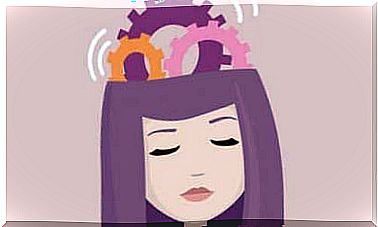Music Affects How You Eat

Music affects your emotions. In turn, your emotions affect your behavior. One of these is your food intake. But does music affect how you eat?
Do you think you tend to eat the most with relaxing or stimulating music? Does music affect your choice of food? What does science say about this subject?
Music affects how you eat
Some studies say that music affects your behavior when you eat, whether you are in a restaurant or at home. In fact , it affects how fast you eat, the time you spend on each dish and your overall experience.

Does relaxing music increase your appetite?
Researchers at the University of Arkansas studied how music affects people when they eat in a restaurant. For the study, they used four types of music: jazz, classical, rock and hip-hop. They also took into account foods seen as emotional, such as chocolate and non-emotional, such as peppers.
Their results showed that people had a greater appetite when they listened to jazz music while eating. However, they had less appetite when listening to hip-hop. The researchers considered that this has a lot to do with emotions. For example, when you listen to music with harmonic rhythms (like jazz), you feel happier. This increases appetite.
Or does relaxing music reduce appetite?
Another study says the opposite. This study was conducted by researchers from the University of Aarhus (Denmark). It was published in the scientific journal Appetite. The study claims that listening to relaxing music makes you eat less. More specifically, to listen to slower, softer melodies.
You eat more when you feel stimulated
However, another study published in Psychological Reports suggests that it is not just increased appetite that causes people to eat more. Impulsivity or being in a hurry also plays a role. According to these researchers, an environment with more stimuli makes you eat more. In fact, they tend to encourage you to eat and even “encourage” you to eat faster. On the other hand, if the atmosphere in the restaurant is relaxed, you will probably feel more relaxed and spend more time enjoying yourself. For this reason, you tend to eat less.
This can prove to be a pretty interesting concept for restaurants. For example, if they want to increase how much customers eat, they should consider the choice of background music quite carefully.
Music affects your choice of food
Another study conducted by the Journal of the Academy of Marketing Sciences suggests that the amount of music can also have an effect on how you eat. More specifically, the study says that you eat better with low volume music because you make healthier choices. On the other hand, the study claims that music with high volume increases stimulation and stress. This means that you are more likely to order comfort food or other unhealthy alternatives.
Music affects the restaurant industry
You now know that your emotions are affected by music, and that music affects how you eat. For this reason, restaurants should perhaps consider this when thinking about optimizing their products and services. In fact, this has been suggested by Isidro Sánchez-Crespo, CEO of The Sensory Lab, a sensory marketing and audiovisual solution company specializing in this particular area.
Sanchez-Crespo confirms that “Many catering companies have already implemented measures, equipped themselves with the technology needed to provide memorable experiences through music, and greatly strengthened the relationship with the customer.”

Regardless, it is clear that music affects the way you eat. As studies claim, music can make you eat more or less, faster or slower, and make healthier or unhealthier choices.
Although some of the studies are contradictory, the truth is that music affects emotions, behavior and mood. Emotions, in turn, often control your behavior, and that behavior includes your eating habits.







